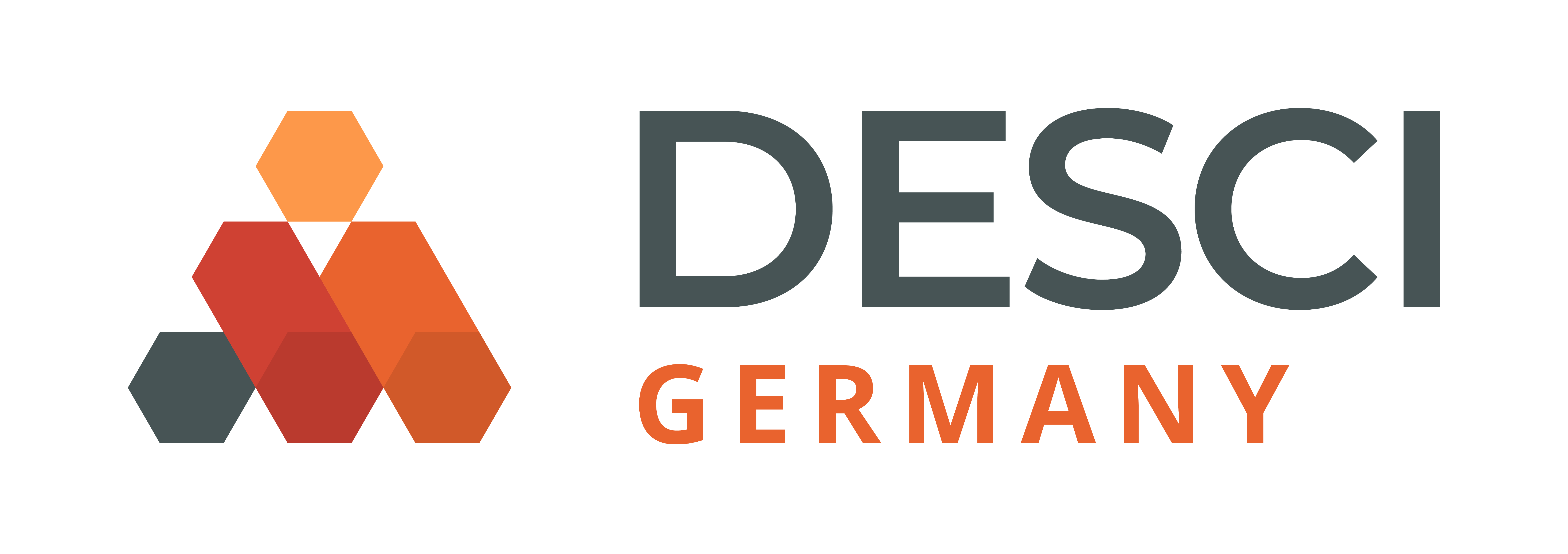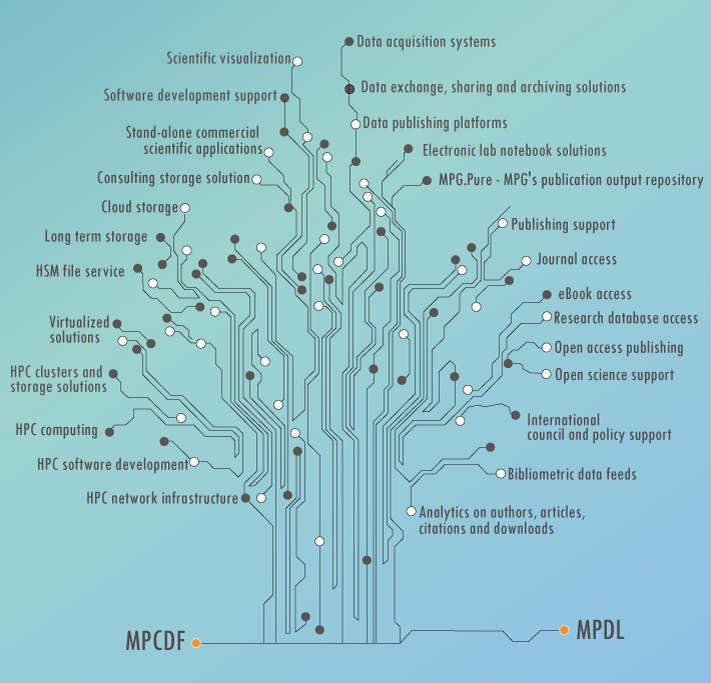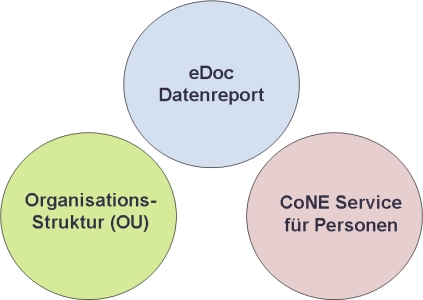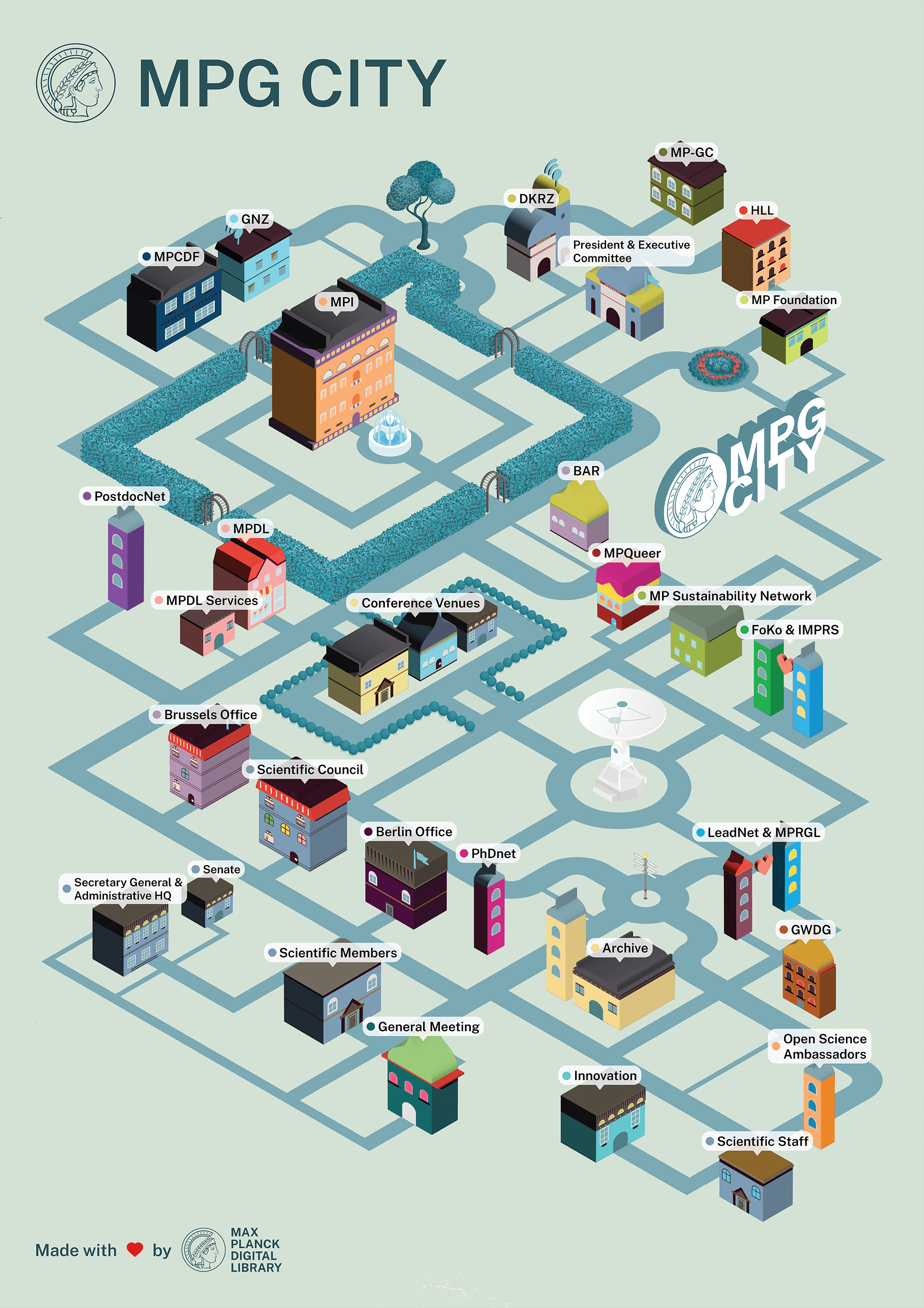-
The Max Planck Decentralized Science Initiative: DeSci Connect
Mission
The Max Planck Decentralized Science Initiative – DeSci Connect is dedicated to reshape the future of science by integrating Web3 paradigms into the scientific realm.
By harnessing the power of blockchain technology, including cryptographic tokens (such as NFTs), decentralized governance, and self-sovereignty, Decentralized Science (DeSci) is transforming the landscape of scientific research and collaboration. It promotes democracy through decentralized governance structures, allowing for more democratic decision-making processes in scientific communities.Blockchain technology can ensure transparent and secure data sharing and research findings, enhancing collaboration and trust. DeSci encourages the development of innovative tools and nurtures a mindset shift towards open, collaborative, and equitable research practices.
The Max Planck Decentralized Science Initiatives ultimate goal is to create a more inclusive, transparent, and efficient scientific ecosystem for all.Initiative
In a rapidly evolving landscape, key players in science — researchers, publishers, funders, and investors — are exploring the DeSci movement. Whereas, traditional research organizations face the risk of being left behind.
The Max Planck Decentralized Science Initiative is poised to bridge this gap by serving as a bidirectional information flow and influence conduit.
On one hand, the initiative will actively engage with the DeSci movement to understand and shape its impact on the scientific community. We aim to influence and guide the movement's trajectory by staying at the forefront of decentralized science developments.On the other hand, we will provide strategic advice to MPG management and researchers, highlighting potential new DeSci tools and methodologies that could enhance their scientific outcomes. By integrating these innovative approaches, we aim to empower researchers to achieve greater transparency, collaboration, and efficiency in their work.
Through this dual approach, the Max Planck Decentralized Science Initiative seeks to ensure that the Max Planck Society remains a leader in scientific innovation and continues to thrive in the decentralized science era.Activities
Collaborations
Investigate new concepts of DeSci within, and outside the MPG: like the interlink with MPG Open Science activities and collaborating on blockchain driven micropublishing with the University College London.
- Open Science: In the context of Decentralized Science, Open Science plays a crucial role in fostering transparency, accessibility, and collaboration. By integrating Open Science principles, we aim to break down barriers to knowledge sharing, allowing researchers to freely access and contribute to scientific data and findings. This approach not only democratizes access to information but also enhances the reproducibility and reliability of research through open peer review and data sharing practices.
- SciBoost Project: The SciBoost – Decentral Continuous Publication project aims to revolutionize how research findings are shared and accessed. It enhances openness in the scientific community by providing a transparent, accountable, and decentralized system, ensuring that all research findings, including minor and negative results, are accessible and continuously updated. This collaboration marks a significant milestone in merging traditional and decentralized science methods, with MPG and UCL leading the charge.
DeSci Germany

DeSci Germany is dedicated to applying Web3 principles to the scientific community, aiming to address potential gaps in the system and foster a new mindset in science. As a central hub and connector for DeSci initiatives in Germany, we are committed to advancing this cause and serving as a key anchor point for the global DeSci movement. Including building up a Knowledge Base for decentralized scientific collaboration and blockchain-driven projects from Germany, such as
- bloxberg
A blockchain-based infrastructure for scientific collaboration and verification. It aims to provide a secure, decentralized ledger for recording and verifying research data, ensuring the integrity and authenticity of scientific contributions. - OpenSci
An initiative designed to make scientific research more open, transparent, and accessible. OpenSci promotes the democratization of scientific knowledge, making it freely available for everyone, enhancing reproducibility and collaboration across the globe. - SAIRA
A decentralized platform for sharing and funding scientific research projects. SAIRA enables researchers to connect with potential funders and contributors, bypassing traditional funding bottlenecks, and offering a more equitable distribution of resources for innovative research.
Read more about DeSci Germany in the DeSci Germany Lightpaper.
Inform & Exchange
The Max Planck Decentralized Science Initiative will function as a dynamic two-way channel for the exchange of scientific information and influence. By actively engaging with the DeSci movement, the initiative aims to understand and shape its impact on the scientific landscape. Additionally, it will offer consultancy to MPG management and researchers, advising on innovative DeSci tools and methodologies that have the potential to enhance their scientific outcomes.
Contact
Head of the Max Planck Decentralized Science Initiative
Friederike KleinfercherThis email address is being protected from spambots. You need JavaScript enabled to view it.
-
Software Licensing Service
Software Licensing Service
To learn more about the service visit our Software Licensing Service Website*.
*only within MPG IP-range
-
bloxsearcher
What is bloxsearcher?
bloxsearcher is an emerging community platform for MPG researchers managed by the Max Planck Digital Library to provide comprehensive background information on why and how blockchain technology can generate added value for science. To start with, bloxsearcher aims to facilitate access to already existing decentralized applications. With a growing community, bloxsearcher’s goal is to bring scientists together to kick-start collaborative design of sustainable blockchain applications.
From Bitcoin to reputation
bloxsearcher builds on bloxberg, a secure global blockchain infrastructure, that was established in early 2019 by a consortium of renowned research organizations under the leadership of the MPDL to provide scientists with decentralized services and foster collaboration among the scientific community.
No matter whether you are blockchain-savvy or new to the field, want to explore the opportunities or start incorporating blockchain applications into your workflows. If you are interested to hear more about bloxberg, dedicated decentralized applications, and the bloxsearcher initiative – become part of an innovative and interdisciplinary community.To join the community, subscribe to our newsletter, or for any bloxsearcher related questions, please contact the This email address is being protected from spambots. You need JavaScript enabled to view it..
-
Merry Christmas
and a Happy New Year 2020!

-
Software Development
Since its foundation, MPDL works together with partners from the institutes and from outside the MPG to plan, specify, design, implement and manage software development projects. Having a main focus an data-centric web applications (visualizing, publishing, archiving data), MPDL has its strengths in project management, software quality assurance and unser interface optimisation, in web browsers as well as on mobile devices (including mobile apps). We use all common web and coding technologies and have outstanding expertise in database, file system, workflow, authentication/authorization, and transformation technologies.
Contact This email address is being protected from spambots. You need JavaScript enabled to view it.
-
Labfolder
What is Labfolder?
Labfolder is the place to record, integrate and manage scientific data. With this electronic laboratory notebook (ELN) software researchers can handle the scientific documentation effortlessly with a lot of support for compliance with academic standards. Labfolder fully supports the Code of Conduct for Safeguarding Good Academic Practice. The Full Audit trail and the possibility of digital signatures ensure intellectual property and take care for data integrity.
Labfolder is characterized by an easy to handle rights and roles management. For example admin users are able to prevent group members from deleting entries or projects and are allowed to view group members’ lab notebooks. Labfolder makes it easy to create groups and subgroups, to define content share settings, to send messages within a group and to use comments to discuss data. Furthermore it is possible to assign tasks to group members.
It is not only possible to import PDF files, further processing of imported word or excel files can also be done within Labfolder. The integration of external apps like Figshare completes this ELN.Labfolder for Max Planck researchers
The Max Planck licensing model for Labfolder includes two usage scenarios that try to cover the various and demanding requirements of our Max Planck Institutes.
(1) Local installation
Labfolder can be set up as an in-house service at the respective institute. Thereby the emerging data will be stored in locally operated server environments.
For using a local Labfolder installation Max Planck researchers need to contact the in-house IT department and/or library team on-site. Cooperations with researchers outside of Max Planck Society are possible, but are potentially limited by regulations of the respective Max Planck Institutes.
(2) Central installation
All Max Planck researchers have the possibility to use the central MPG Labfolder solution, which is operated by the Max Planck Digital Library (MPDL). The emerging data will be stored at the computer center GWDG in Göttingen, Germany.
The central installation offers possibilities for a better collaboration on research projects with various stakeholders from different Max Planck institutes, associated organizations, or joint research groups around the world.
For more information about the MPG Labfolder instance please contact the This email address is being protected from spambots. You need JavaScript enabled to view it. at the MPDL.To get to know more about labfolder in principle and discover all provided ELN features, please contact This email address is being protected from spambots. You need JavaScript enabled to view it., the Max Planck account manager at Labfolder.
-
Scientific Journals
Did you know that Max Planck researchers have access to more than 15,000 scientific journals? Negotiating with over 100 commercial publishers worldwide, we organize licensing, financing and access exclusively for you.
Access to journals and articles is provided invisibly through "on campus" authentication - no passwords required, no annoying login or paywall experiences. This service is called "MPDL Access Magic" which allows you to go to the publishers’ websites directly or use your preferred tools to search for individual articles such as Google, PubMed or Web of Science. If you like to look for a specific journal use the Electronic Journals Library (EZB). In addition, our recently launched research navigator MPG.ReNa provides you with an overview of information resources available at MPG including all licensed journal collections.
If you have any questions concerning access issues, license questions, IP address changes or questions about the MPG "Grundversorgung" ask our MPDL Access Magic Helpdesk.
Our helpdesk can be reached at This email address is being protected from spambots. You need JavaScript enabled to view it..
-
Scientific Application Services - Support for your Research
A joint service portfolio of
Max Planck Computing & Data Facility (MPCDF)
Max Planck Digital Library (MPDL)
With our joint team and expertise of MPCDF and MPDL we support you and your research in addition to the IT staff at your MPI. Our specialists and our management operate in close cooperation to provide you with the best scientific application service – especially for the planning and realization of large projects requiring a broad range of services and facilities.
We assist in finding financing solutions for your next great plan. Our joint support will be led by a single, project-specific person from one of us.Click on our interactive map:

Contact us – we are looking forward to working with you:
Hotline (Monday to Friday 7:00-19:00)
+49 (0) 89 909311-243
This email address is being protected from spambots. You need JavaScript enabled to view it.
-
Research Data Management
The MPDL offers advice and support in research data management. We help to create data management plans for project proposals, we have competency in metadata standards needed for the long-term archival of research data and we assist in converting data to commonly accepted formats.
We support researchers in finding suitable data repositories and offer possibilities to store research data in a nicely presented, citable, and reusable way.
Contact: Yves Vincent Grossmann
More Info: RDM-Website
-
Librarian's Resource Center
Eine wichtige Aufgabe der MPDL besteht darin, den Wissenschaftlerinnen und Wissenschaftlern an den Max-Planck-Instituten alle relevanten elektronischen Informationsressourcen des institutsübergreifenden Bedarfs optimal zur Verfügung zu stellen. Dies geschieht in Zusammenarbeit mit den lokalen Bibliotheken. Die folgenden Informationen richten sich insbesondere an die Kolleginnen und Kollegen an den lokalen Bibliotheken in der Max-Planck-Gesellschaft.
-
Was ist die Grundversorgung?
Allgemeine Informationen, Akteure
-
Kommunikation
Mailinglisten, Liste der Bibliotheken und Serviceeinrichtungen
-
Ressourcen
Übersicht über lizenzierte Produkte, Titellisten, Nutzungsbedingungen, Nutzungsstatistiken
-
Erwerbung
-
Authentifizierung und Registrierung
-
Zugangssysteme
Bibliothekssysteme, EZB, E-Books-Katalog, MPG Bibliothekskataloge, MPG.ReNa, MPG/SFX
-
Open Access für Bibliotheken
-
-
MPDL Access Magic Helpdesk
The MPDL Access Magic Helpdesk takes care of all your concerns about access issues, license questions, IP address changes and consulting around all the information services included in the "Grundversorgung" of the MPG. We work with more than 150 publishers to resolve issues.
The MPDL Access Magic Helpdesk can be reached at This email address is being protected from spambots. You need JavaScript enabled to view it..
-
Reporting and Statistical Analyses
MPDL creates custom reports for specific decsion making processes concerning the MPG information environment. Based on comprehensive and multi-variate approaches, we identify and collect target-specific financial, usage and structural information, analyze the data and visualize the results. As a result, insights are created into researcher information preferences, publisher relevance, information usage patterns and cost effectiveness.
Contact: Margit Palzenberger (MPDL)
-
RIO - Research Information Observatory
The Research Information Observatory (RIO) aims at establishing a technical and operational framework for large bibliographic datasets and other forms of citation intelligence in order to support subject specialists in the MPG to perform their bibliometric analyses and research assessments.
MPDL provides an easy to use interface to the processed bibliometric data and is responsible for the operation of the framework including the necessary documentation. Developed together with a core group of MPG subject specialists, the project is currently building up.
Contact: Margit Palzenberger (MPDL)
-
MPG/SFX Demo
Your bridge to full text PDF
MPG/SFX is your button to download the requested article's full text PDF. It takes you from your search results directly to the article on the publisher's website. You will find the MPG/SFX button in databases like Web of Science, Scopus or on many other platforms.
MPDL maintains this link resolving service and constantly feeds it with the most recent developments in the MPG information portfolio.
Search Results
(Try the Demo-SFX Button below.)
By: Stratmann, MartinNATURE MEDICINE Volume: 20 Issue: 7 Pages: 695-695 Published: JUL 2014 -
MPG City Service
The Max Planck Society grows continuously as a successful research organization - like an "MPG City" harboring various research institutes and expanding infrastructure.
Within this city, there are many service institutions for all Max Planck Institutes and their research. Our "MPG City Service" guides you through this town and helps you find the right contact person for your needs. We support you and your plans with information about what MPG offers regarding digital services, research data management, and scientific tools. -
Max Planck Brain Imaging Library (OpenBILD)
Projekt Koordinator: MPI für Bildungsforschung, Berlin
Partner
- MPI für Bildungsforschung, Berlin
- MPI für Kognitions- und Neurowissenschaften, Leipzig
- MPI für Psycholinguistik, Nijmegen
Laufzeit: 01.02.2013 – 31.01.2015
Projektbeschreibung:
Hirnforschung findet immer größere Aufmerksamkeit in der Presse. Um fundierte Aussagen über die Funktionsweise des menschlichen Gehirns treffen zu können, bedarf es an qualitativen Daten und oft auch einer großen Anzahl an Beispielen für Vergleiche. Daten aus den Neurowissenschaften sind nicht nur äußerst heterogen sondern auch sehr verteilt, so dass Institute der Max-Planck-Gesellschaft vielfach nicht von Experimenten an anderen Standorten profitieren können. Das Projekt OpenBILD konzentriert sich auf Anpassungen der Open Source Plattform XNAT , um Wissenschaftlern aus den Neurowissenschaften das Archivieren und Austauschen von Daten zu ermöglichen. Gleichzeitig werden Werkzeuge für automatische Qualitätskontrollen als auch für das Vorbereiten der Daten zur Verfügung gestellt.Die Heterogenität der Daten wird sichtbar, wenn man die verschiedenen Datentypen genauer betrachtet. So finden sich unter den Daten der Wissenschaftler neben Bilddaten im sogenannten DICOM Format aus den MRT Scannern auch demographische, sozioökologische, psychologische, verhaltensbezogene, medizinische und genetische Informationen in den unterschiedlichsten Formaten. Um die Untersuchung der umfangreichen Bestände auch in Zukunft zu gewährleisten, ist die Entwicklung bzw. Nutzung einer Ontologie geplant. Die im Rahmen der Ontologie definierten Konzepte und Beziehungen dienen dazu, Suchen und Browsen der Daten deutlich zu verbessern.
Um eine nutzbare Plattform für die Wissenschaftler schaffen zu können, müssen ihre Bedürfnisse, ihre verwendeten Datenformate und Workflows im Detail bekannt sein. Der Austausch mit den Neurowissenschaftlern ist für die Entwicklungen in OpenBILD daher von großer Bedeutung. Zur Gewährleistung des Austausches pendelt einer der Entwickler in einem ersten Schritt kontinuierlich zwischen den Institutsstandorten Berlin und Leipzig. Gleichzeig wird der Austausch mit der Open Source Community vorangetrieben, da die Weiterentwicklung der XNAT Plattform selbst sinnvoller Weise in Gemeinsamkeit mit der genannten Community erfolgt. Auf diese Weise profitiert das Projekt von Entwicklungen, die aus den Reihen der Community stammen. Anpassungen der Software, die nur für die Institute relevant sind, werden separat entwickelt und können dann als Modul später mit dem aktuellsten Release der XNAT Anwendung integriert werden.
Im Laufe des Projektes wird die MPDL die Fähigkeit aufbauen, Support für die bestehenden Installationen als auch eine Beratung für weitere interessierte Institutionen anbieten zu können. Dazu findet ein systematischer Wissenstransfer von den Projektteilnehmern zur MPDL statt, insbesondere durch Dokumentation, Videokonferenzen, Face-to-Face-Treffen und eine enge Zusammenarbeit zwischen den Entwicklern sowie den Projektkoordinatoren. Die MPDL akkumuliert dabei das Wissen der verschiedenen Projektteilnehmer. Als Grundlage für den späteren Betrieb werden die Institute mit Unterstützung der MPDL ein Nachhaltigkeits- und Finanzierungskonzept erarbeiten.
- eXtensible Neuroimaging Archive Toolkit
- Digital Imaging and Communications in Medicine
- Magnetresonanztomographie
-
Publication Data Migration Support
The MPDL migration team supports you and your library migrating to the central Max Planck Publication Repository MPG.PuRe. We extract and convert publication data from systems at the end of their lifecycle. We convert data streams from various sources in a single well-defined format. Over the last 5 years we have successfully supported more than 40 institutes with their migration challenges.Migration from eDoc to MPG.PuRe

Procedure for migration from eDoc to MPG.PuRe
Migration from from other sources
Migration from Endnote, BibTeX and other non-eDoc sources have become standard procedures for us.Please contact us for further information and a discussion of your special needs.
Contact and further information: Martin Boosen (MPDL)
-
Joint Forces for Better Information Infrastructure
MPDL continuously improves conditions for more intuitive, more flexible and more reliable information access. Numerous software products and information resources are employed to support a seamless service to researchers. We work with various vendors as well as user communities on top management and operational employee level to monitor and influence upcoming developments for the benefit of MPG users.
Contact: Ralf Schimmer (MPDL)
-
Joint Forces for Better Licensing
MPDL collaborates with national and international partners to broaden the scope of and to improve the accessibility to electronic resources for MPG researchers. These collaborations are very valuable for successful licensing negotiations. On the national level, members of MPDL participate in different working groups of the Alliance Initiative and are present in the GASCO (the German, Austrian and Swiss Consortia Organisation). On an international level, MPDL is a member of the ICOLC (International Consortium of Library Consortia).
Contact: Ralf Schimmer (MPDL)
-
Aleph
Maximize your library's efficiency
The Aleph integrated library system (ILS) with its efficient and user-friendly tools is currently used by 40 research libraries within the MPG to accommodate the daily demands of their researchers. Aleph supports the complete workflow of a modern, user-centered research library. This includes catalog enrichment, acquisition, serials control, loan, inter library loan, web-based search interface. The system configuration can be tailored to meet virtually any library policy or procedure, enabling the creation of unique policies and workflows. The service is hosted and maintained by GWDG. GWDG supports MPG Librarians with regards to system configuration and optimization. Aleph is an integrated library system (ILS) by Ex Libris. Since 2000 the Max Planck Society and the GWDG have been running a central Aleph server for MPI libraries.
The forty instances do not share a common database (no library consortia), but are quite independent in their setup.
MPDL is responsible for licensing matters. Hosting, support, and central system librarians' tasks are done by GWDG. System librarians in the MPIs take care of their libraries' individual setup and, in a joint working group, of a standardized setup for those libraries wishing their setup to be maintained centrally. Another working group develops and keeps up to date a corporate design for the Aleph OPAC.
The Aleph team is a group of MPI librarians and members of MPDL and GWDG. They meet about twice a year to discuss different topics, e.g. ongoing developments, the roll out of software upgrades and the participation of the partners in national and international Aleph user groups. The Aleph Team issues a bi-monthly Newsletter informing the librarians of its ongoing work. Discussion and documentation tool for the work of the Aleph team ist the Aleph Wiki. General information on the MPS Aleph Server is available. (Note: Some of the links in this article lead to the Aleph Wiki to which access is restricted to members of MPS and GWDG.)
Contact: This email address is being protected from spambots. You need JavaScript enabled to view it.
-
Open Access Publishing
Our aim is to make Open Access publishing as easy as possible for Max Planck authors. This information provides an overview of the Max Planck wide arrangements by which open access article charges (APCs) are covered or reduced. To make the most of this opportunity, Max Planck authors will be prompted to choose the Creative Commons Attribution License (CC BY) in the manuscript submission or acceptance process, automatically. You can find further information on CC licenses here:
Search for a specific journal to find out whether APCs are covered here:
Please note that there are many more relevant Open Access journals, including those not raising any article charges. A complete overview is available in the:
How to benefit from central funding?
To be eligible, Max Planck affiliated authors must be corresponding author of the publication and the Max Planck affiliation must be stated in the published paper. For some agreements, eligible authors must also be submitting author. Specific criteria are listed below for each publisher. Please use your Max Planck email address at all stages of the publishing process if possible to support automated identification processes from the publishers.
Open Access agreements (Article charges covered centrally by MPDL)
PUBLISHER ENTITLED AUTHORS JOURNALS Association for Computing Machinery (ACM) Corresponding author The ACM open access agreement centrally covers the open access charges for Max Planck affiliated corresponding authors in all ACM journals under a Creative Commons Attribution license (CC BY).
American Chemical Society (ACS) Submitting corresponding author The ACS open access agreement centrally covers the open access charges for Max Planck affiliated submitting corresponding authors in ACS journals that offer a Creative Commons Attribution license (CC BY).
AIP Publishing (AIPP) Submitting corresponding author The AIPP open access agreement centrally covers the open access charges for Max Planck affiliated submitting corresponding authors in AIP-owned as well as related society journals.
American Physical Society (APS) Initial corresponding author The APS open access agreement centrally covers the open access charges for Max Planck affiliated initial corresponding authors in all APS Journals (except "Review of Modern Physics" and "Physics").
BioMed Central (BMC)
Corresponding author
Cambridge University Press (CUP) Submitting corresponding author The CUP open access agreement centrally covers the open access charges for Max Planck affiliated submitting corresponding authors in all fully open access and hybrid journals.
Cogitatio Press Corresponding author For articles submitted from January 1, 2023, the open access agreement with Cogitatio Press centrally covers open access publishing for Max Planck affiliated corresponding authors in all Cogitatio journals
Copernicus
Corresponding author
EDP Sciences/ Astronomy & Astrophysics Corresponding author The EDP Sciences open access agreement centrally covers the open access charges for Max Planck affiliated corresponding authors in Astronomy & Astrophysics
eLIFE
Corresponding author
Elsevier Submitting corresponding author MPG participates in the agreement between the DEAL Consortium and Elsevier and centrally covers the Open Access fees for affiliated corresponding authors in more than 2500 hybrid and full Open Access journals.
F1000Research Corresponding author F1000Research articles up to 8.000 words and more; please contact us in case of charges for oversized data storage Frontiers
Corresponding author
Hindawi Responsible corresponding author From January 1, 2023, Hindawi journals are covered through the agreement between Projekt DEAL and Wiley.
Institute of Physics (IOP) & Electrochemical Society (ECS) Submitting corresponding author The IOP open access agreement centrally covers the open access charges for Max Planck-affiliated submitting corresponding authors in IOP Gold OA and Hybrid journals.
Karger Corresponding author The publish and read agreement with Karger centrally covers the open access charges for Max Planck affiliated corresponding authors in all Karger hybrid subscription journals and Gold Open Access journals.
Please note that charges for additional options (color-in-print, posters etc.) are NOT covered by this agreement.
KOALA The KOALA funding model provides fair and sustainable funding for quality-assured APC-free open access publications ("Diamond Open Access"). MPDL supports KOALA through financial membership in dedicated bundle(s). KOALA Computer Science and Mathematics 2025 - 2027 Mary Ann Liebert Corresponding author The hybrid open access agreement with Mary Ann Liebert centrally covers the open access charges for Max Planck affiliated corresponding authors in all currently subscribed journals.
Microbiology Society Corresponding author The publish and read agreement with Microbiology Society centrally covers the open access charges for Max Planck affiliated corresponding authors in all gold and hybrid journals.
Multidisciplinary Digital Publishing Institute (MDPI)
Corresponding author
Nature Corresponding author The Nature Read & Publish Framework Agreement centrally covers the open access charges for Max Planck affiliated corresponding authors in Nature Research Jorunals.
Open Library of Humanities MPDL supports OLH through financial partnership. OLH does not charge any publication fees. OLH Oxford University Press (OUP) Corresponding author The agreement with OUP centrally covers the open access charges for affiliated corresponding authors in hybrid and selected fully open access journals under a Creative Commons Attribution license (CC BY).
PeerJ
Corresponding authors
The agreement covers open access charges for publications by Max Planck corresponding authors in all PeerJ journals.
Portland Press Corresponding authors The open access agreement with Portland Press centrally covers the open access charges for Max Planck affiliated corresponding authors in all Portland Press/Biochemical Society journals.
Proceedings of the National Academy of Sciences (PNAS) Corresponding author The open access agreement centrally covers the open access charges for Max Planck affiliated corresponding authors in PNAS under a Creative Commons Attribution license (CC BY).
Public Library of Science (PLoS)
Corresponding author
Rockefeller University Press (RUP) Corresponding author The open access agreement with RUP centrally covers the open access charges for Max Planck affiliated corresponding authors in these 3 RUP journals: Journal of Cell Biology, Journal of Experimental Medicine, Journal of General Physiology.
Royal Society of Chemistry (RSC)
Corresponding author
The RSC "Read & Publish" agreement centrally covers the open access charge for affiliated corresponding authors in all journals under a Creative Commons Attribution license (CC BY).
SAGE
& IOS PressCorresponding author All OA gold journals and hybrid journals in the Premier title set
ScienceOpen [Pilot agreement]
Corresponding author
SPIE (International Society for Optics and Photonics)
Primary or Corresponding author
The SPIE open access agreement centrally covers the open access charges for Max Planck affiliated primary and corresponding authors in all fully open access and hybrid journals except Proceedings.
Springer Nature
Corresponding author
MPG participates in the agreement between Projekt DEAL and Springer Nature and centrally covers the Open Access fees for affiliated corresponding authors in ca. 2.900 hybrid and full Open Access journals.
Taylor & Francis
Submitting corresponding author
The Company of Biologists Corresponding author The agreement centrally covers the open access charge for affiliated corresponding authors in all journals of the Company of Biologists under a Creative Commons Attribution license (CC BY).
The Royal Society
Corresponding author
The Open Access agreement with the Royal Society centrally covers Open Access fees for articles submitted by affiliated corresponding authors in all hybrid and fully OA journals.
Wiley
Responsible corresponding author
MPG participates in the agreement between Projekt DEAL and Wiley and centrally covers the Open Access fees for affiliated corresponding authors in all hybrid and full Open Access journals.
Open Access Monograph Publishing
PUBLISHER ENTITLED AUTHORS Brill Authors affiliated with a Max Planck Institute receive a discount on the standard Book Publishing Charge (BPC) and on the standard Chapter Publishing Charge. MPDL covers the costs remaining after the discount is applied on a pro rata basis.
Further information Cambridge University Press Authors affiliated with a Max Planck Institute receive a discount on the Book Publishing Charge (BPC). MPDL covers the costs on a pro rata basis.
Further information De Gruyter OA Books
Authors affiliated with a Max Planck Institute receive a discount on the standard Book Publishing Charge (BPC) and on the standard Chapter Publishing Charge. MPDL covers the costs remaining after the discount is applied on a pro rata basis.
Further information Mohr Siebeck
Authors and editors affiliated with a Max Planck Institute. MPDL covers costs of a simultaneous open access publication.
Further information Nomos
Agreement with Nomos to publish open access monographs: MPDL covers costs of a simultaneous open access online publication.
Springer Nature Authors affiliated with a Max Planck Institute receive a discount on the Book Publishing Charge (BPC). MPDL covers the costs on a pro rata basis. Further information Further related terms and conditions for Max Planck Authors (without central funding)
The following table shows special terms and conditions for Max Planck authors beyond our central agreements where no central funding is provided.
PUBLISHER CONDITIONS JOURNALS AAAS / Science
Corresponding author - All Max Planck corresponding authors may receive institutional savings of 15%. AAAS members are entitled to receive additional savings - no central payment by MPDL.
More information at AAAS / ScienceAdvances
Any journal or publisher missing?
In case you are in need of funding for open access publication charges for a specific journal or publisher, please contact us. We strive for further agreements with publishers where we see a shared demand from Max Planck authors. Please note that we cannot reimburse individual invoices. In that case, your institute or local library may provide further funding opportunities.
Contact: This email address is being protected from spambots. You need JavaScript enabled to view it.
-
Open Access Support
Open Access Publishing
also called “Gold” Open Access
means publishing in a genuine Open Access journal which ensures immediate free access to all articles at the very moment of publication. Copyright will remain with the authors while a public license (usually Creative Commons license CC-BY) is applied to the article. Many Open Access “Gold” journals require payment of „article processing charges“ (APCs) to replace the subscription charges which were traditionally paid by libraries. MPDL strives to cover APCs for Max Planck authors by setting up agreements with Open Access publishers. Learn more about our central agreements.
Open Access Archiving
also called “Green” Open Access
means that the published article or the final peer reviewed manuscript is archived (deposited) by the author or a representative in an online repository before, alongside or after its publication. Self-archiving regulations differ between publisher’s. Normally authors have to check their publishing agreement to find out whether self-archiving is allowed.
Since 2014 German copyright law has allowed authors of research publications at non-university research institutes to re-publish their papers 12 months after the original publication in a manuscript format. This right cannot be rescinded by any publishing agreement.
MPDL supports Open Access Archiving by providing the institutional repository MPG.PuRe.
For questions on Open Access contact: This email address is being protected from spambots. You need JavaScript enabled to view it.
-
Research Service Catalog
Please check out our service catalog. If you can't find what you are looking for or if you have any questions, feel free to contact us.
For all services apply the Terms of Services of the Max Planck Digital Library.
-
You can't find certain articles or other works with an Internet search? Need to identify articles or patents on a specific topic? Bibliographic databases are used to locate references to journal articles, conference proceedings, book materials, reports, patents, etc. MPDL has subscribed to a selection of discipline-specific bibliographic databases to provide MPG users with access to high-quality reference information.
-
bloxberg is a secure global blockchain established in early 2019 by a consortium of eleven world-leading research institutions from ten different countries and under the leadership of the Max Planck Digital Library. The aim of the bloxberg infrastructure is to provide scientists with decentralized services and to foster collaboration among the global scientific community. For example, with consented transactions on the bloxberg infrastructure, research claims need not be limited to one institution alone but can be confirmed by the whole trusted network. bloxberg strives to have sufficient representation from various scientific entities worldwide, participating in the consortium, so that the network itself may replace traditional scientific infrastructure such as closed-access publishing of research results, among others. Since the genesis of bloxberg 2019, the network has expanded daily and many scientific applications are now being developed by researchers, commercial vendors, or academic service units such as libraries.
-
Want to find out the impact of a certain journal or how many times you have been cited? MPDL provides a collection of databases for science assessment and evaluation.
-
The MPG CoNE (Control of Named Entities) platform hosts and provides multiple sets of controlled vocabularies used to ensure data quality and data consistency in different MPG software solutions, e.g. in MPG.PuRe, the MPG Publication Repository. It enables easy data entry, differentiation of ambiguous data representations and therefore also clean search results. In addition to continuously extended reference data (like MPG affiliated authors and scientific journals), the service also provides authority records from different standardization organizations (ISO-639 languages, IANA mime types) and classification vocabularies (DDC Dewey Decimal Classification). CoNE can be queried via a machine interface and delivers data in multiple, widely accepted formats, like RDF/XML, JSON and HTML. A comfortable web interface enables straightforward creation, import, edit and search of data. The service is easily extensible and configurable for new vocabulary sets. This allows e.g. the inclusion of individual subject classifications for Max Planck institutes.
-
Would you like to dive into facts and figures on various topics? MPDL provides many databases with reliable sources and references supplying information compiled by experts.
-
MPDL plays a key role in negotiating and implementing Germany’s nationwide DEAL transformative “publish and read” agreements with the largest scholarly journal publishers.
-
The Max Planck Decentralized Science Initiative – DeSci Connect is dedicated to reshape the future of science by integrating Web3 paradigms into the scientific realm.
-
Assigning persistent identifiers to research data and unpublished text material is of growing importance to improve the citability of these resources. This is a necessary step towards enabling easy data distribution and reuse. The MPDL is supporting Max Planck researchers with registering Datacite DOI names to scholarly objects stored in MPG repositories. This is done in cooperation with the German National Library of Science and Technology (TIB).
-
Edmond is a research data repository for Max Planck researchers. It is the place to store completed collections of scientific data sets with open access. Edmond can be used to publish raw data for re-use by other researchers as well as supplementary secondary data underlying a certain publication. Our research data repository features a non-restrictive metadata schema definition, as simple as you like and as complex as your parameters require.
Edmond is provided as a central service by the Max Planck Digital Library. It is based on the Open Source Software imeji.
-
ESAC is an open community of information professionals dedicated to putting the vision of open access to research into practice. MPDL coordinates this group of libraries and library consortia worldwide.
-
FACES is a research data management application specifically created by MPDL for the Max Planck Institute for Human Development (Dept. U. Lindenberger). It harbors a unique research data collection of images with emotional facial expressions (neutrality, sadness, disgust, fear, anger, and happiness).
The image collection is freely available for scientific purposes and was re-used in various contexts worldwide. It solves the challenge of data privacy by distinguishing an open part of the collection and other parts, which are made available to researchers on a case by case basis.
The FACES application is maintained and operated by MPDL. It was the beginning of a series of novel software developments at MPDL with imeji and Edmond being the latest services.
-
iThenticate is a leading plagiarism checker service. It makes identifying and attributing material that may contain unintentional plagiarism easier. As an author, you can ensure that your sources are sufficiently cited. As a reviewer, it can help you detect plagiarism and attribution issues that could damage reputations or spawn repercussions like financial and legal obligations.
iThenticate compares uploaded documents to published research articles from global scientific, technical, and medical publishers and web content. The highlighted text will include text that has been correctly quoted and cited, so it is not necessarily plagiarized. You will need to verify that every highlighted section has been properly quoted, summarized, or paraphrased.
Note: iThenticate is a hosted third-party service. As you need to upload your documents to the company's servers, it is not suited for documents containing sensitive information. -
With the Keeper Service, you can easily sync and share your project data, and in addition, we take care that your work is properly archived in the Max Planck infrastructure. Convince yourself of the reliable and high-performant file syncing algorithms and the built-in file encryption. Support your team with the Keeper collaboration functionalities. By storing your data in Keeper, you can be sure to fulfill the archiving regulations of the Max Planck Society as well as the German Research Foundation to ensure ‘good scientific practice’. Or you deposit your data to the Keeper Service after your project ends for long-term compliant archiving.
The Keeper Service is free of charge for all Max Planck employees. If you are from an external organization and collaborate with the Max Planck Society, you are also invited to exploit the Keeper Service for all Max Planck related projects. Please contact the This email address is being protected from spambots. You need JavaScript enabled to view it..
-
Labfolder is the place to record, integrate and manage research data. With this electronic laboratory notebook (ELN) software researchers can handle the scientific documentation effortlessly with a lot of support for compliance with academic standards. For Max Planck researcher there are two usage scenarios available: Labfolder can be set up as a service at the respective local institute. Furthermore all Max Planck researchers have the possibility to use a central MPG Labfolder solution, which is provided by the Max Planck Digital Library (MPDL).
-
The following information is primarily directed toward librarians and information professionals at the individual Max Planck Institutes.
-
The Minerva Messenger (based on Mattermost) brings all MPG communication together, making it searchable, accessible & easy to use – anywhere. You can create your own chat-channels, communicate with team members, discuss current topics and share your data files. Also, you can invite external collaboration partners & use Zoom at any time. This innovative platform is provided & maintained by the MPDL, which means all your data is safe within our secure MPG infrastructure.
-
As a Max Planck scientist, you have seamless access to thousands of journals, eBooks, and databases to support your research. This is possible through our service “MPDL Access Magic”. Learn how you can get access to all licensed online resources from anywhere and at any time.
-
MPG Citation Linker can help you with your partial or complete reference information to locate the full text or other services. It offers a direct route without having to perform searches in databases or library catalogs. Simply type in the DOI or other bibliographic information to get started.
-
Are you looking for something within the MPG? No problem! Just get in touch with the MPG City Service, which is a hotline and email service putting you in contact with the proper central organization of the MPG & supporting you with your specific “digital” problem.
Give us your name, institute, and a short description of your digital challenge. We will find the right person to talk to across MPG’s central organizations and have them contact you!MPG City Service is provided by MPDL.
-
Thanks to a growing number of agreements negotiated by the Max Planck Digital Library with many publishers, Max Planck authors can publish their articles open access at no cost to them increasing the visibility and impact of their work. When publishing an article in any of the supported journals, the relative article processing charges (APCs) will be fully covered by MPDL.
-
Together, MPDL and MPI libraries have licensed over 700.000 eBooks for the entire Max Planck Society. They can be accessed directly from the providers' sites. To discover eBooks accessible within the Max Planck Society simply search MPG.eBooks
-
MPG.PuRe is the institutional publication repository of the Max Planck Society (MPG). The Max Planck Institutes use this application to make bibliographic data of their academic publications (title, author, publisher, etc.) accessible to the public. In addition, it supports Green Open Access and provides the possibility to upload full-texts or supplementary material (e.g. PDF, Excel). The visibility of stored data is raised by automatic search engine indexation. Interfaces enable multiple re-use options, e.g. for various websites, reports, blogs, or the MPG yearbook. MPG.PuRe is a central service provided by the MPDL. It is based on the open-source software PubMan, which is undergoing continuous development and improvement by the MPDL.
Since 2008 MPG.PuRe is gradually replacing its predecessor system eDoc as the institutional repository of the MPG. -
The MPG Resource Navigator (MPG.ReNa) has information on all databases, journal and eBook collections available for MPG users. Use MPG.ReNa to get an overview and
navigate through the entire MPG collection as well as your own institute‘s resources. -
MPG/SFX is your button to link to the full-text of the article you need. It takes you from your search results directly to the article on the provider's website. You will find the MPG/SFX button in databases like Web of Science, Scopus or on many other platforms.
-
Carrying forward the mission of the Max Planck Society for the Advancement of Science as a champion of open access in research communication, the Max Planck Digital Library coordinates the international Open Access 2020 Initiative (OA2020). OA2020 is a strategic alliance of research organizations from all continents working to accelerate the transition of scholarly publishing to open access. In addition to organizing the Berlin Open Access conference series, OA2020 organizes a rich program of activities that engage thousands of research stakeholders, annually, in advancing strategies, such as transformative agreements, that repurpose subscription investments into funds that support open access publishing under conditions that are transparent, sustainable and globally equitable.
-
Need to see what journals are accessible to you? The Electronic Journals Library (EZB) offers information on online journals held the Max Planck Society as well as more than 600 other libraries. It provides researchers and librarians with simple and clear information on access rights.
-
To make Open Access Publishing comfortable for MPG researchers, MPDL has negotiated terms and conditions for many journals, where Max Planck authors can publish Open Access at no cost to them. MPDL also supports you in publishing your book in Open Access. Follow the link to the list of central Open Access agreements.
-
PubMan is a repository software which is being developed and made available by MPDL. It supports research organizations managing, disseminating and re-using publications and supplementary materials. This solution addresses all disciplines and focuses on the target groups researchers, local librarians and local IT. Due to the heterogeneous policies, cultures and workflows of the Max Planck Institutes, customization and configuration options throughout the solution features are of major importance. Being open source, it is freely available to interested persons or institutions all around the world.
MPG.PuRe, the institutional repository of the MPG, is using PubMan as underlying software.
MPDL also provides a special PubMan plugin for the established open source content management software (CMS) WordPress. The Plugin is freely available and enables the simple integration of publication data stored in a PubMan repository within local websites. For additional information please see our PubMan plugin test-page.
Follow the link to the PubMan Software homepage
-
The "RDMO for MPG" service supports the organization and writing of data management plans for various funding organizations. Using the RDMO software, DMPs can be written more quickly and with other scientists. At the same time, the plans can be updated throughout the various project phases and possibly forwarded to funding bodies.
-
With access to various online dictionaries, encyclopedias, handbooks, manuals or other reference works MPDL enables researchers to look up standard definitions and technical terms in all academic fields. Key reference works are covered in the natural sciences as well as in the social sciences and humanities key interdisciplinary reference works.
-
Are you looking for your next research funding?
MPDL provides you with access to up-to-date research funding information through dedicated databases, which also may include news around research funding in general. -
Software licensing should be more convenient for all Max Planck Institutes and MPG-facilities. For this reason, MPDL received the job of creating an MPG-wide, institutionalized basic supply of software and online services, similar to the “Grundversorgung” for information resources. The SoLi team organizes the cross-institute software procurement and is, therefore, your central point of contact for questions relating to the basic supply of software and online services. Get in touch with the SoLi team for all questions around our basic software supply!
-
MPDL offers MPG-wide access to VDE standards as well as a simple way to order a DIN, ISO or VDI norm document at no cost to you or your MPI. Just give the details of the document you need to your library or acquisitions department and the full process will then be handled by MPDL. Please note that this service only includes original standard documents -- no handbooks or textbooks. For any additional material please contact your local library.
-













